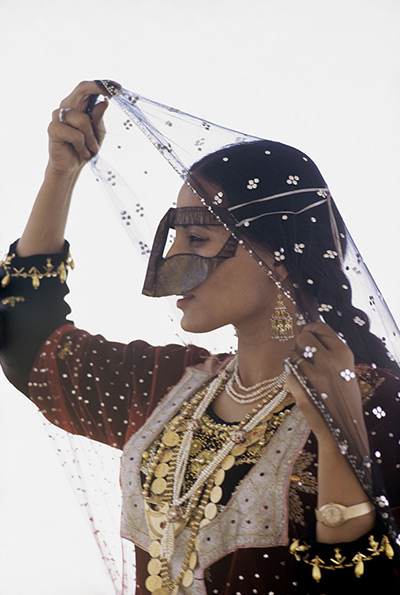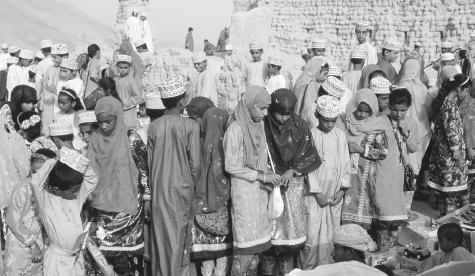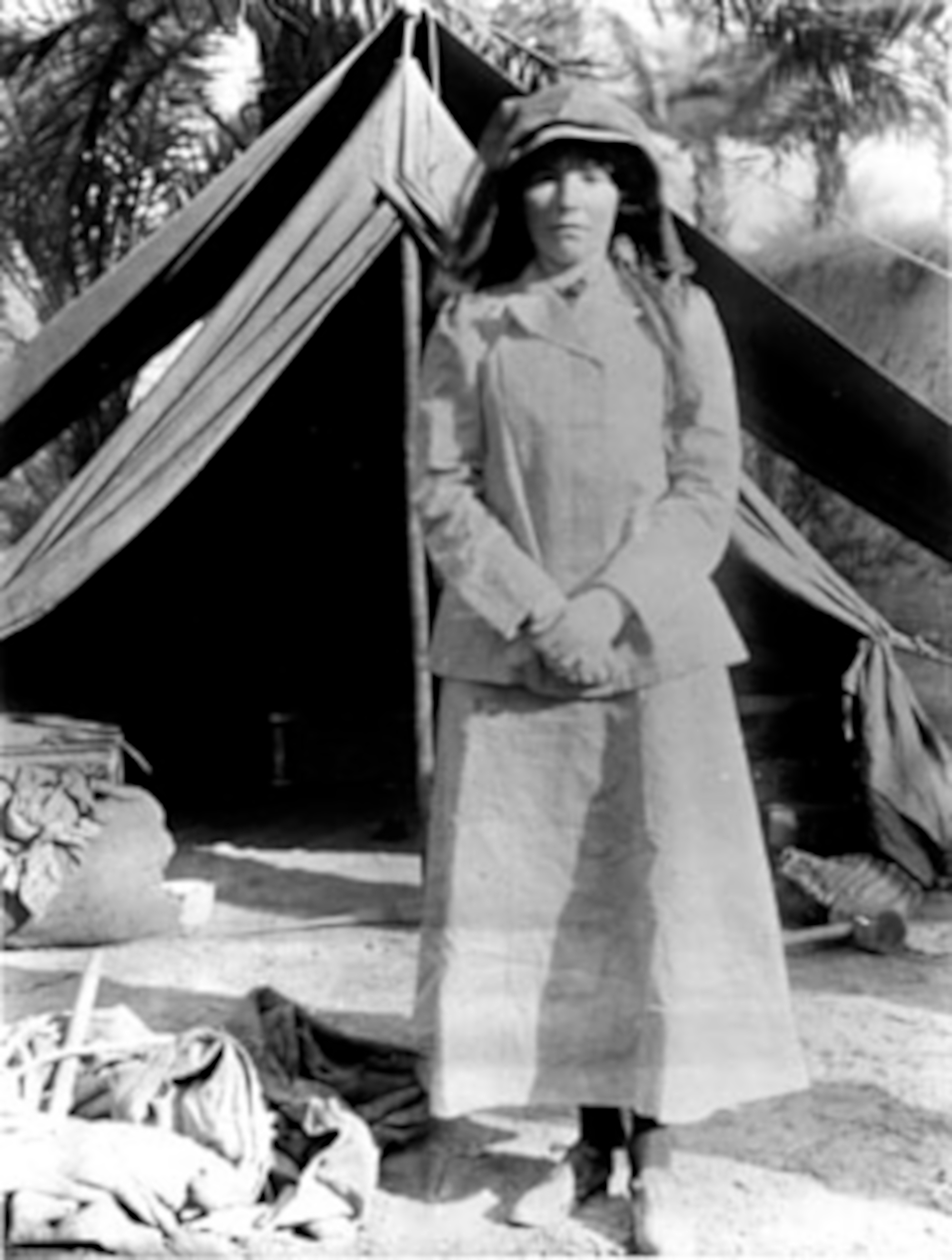[From
“Intention is Gold: Traditional Emirati Stories” by ‘Abd al-Aziz al-Musellim]
In one of the countries there lived a good
man, who became famous for his bad luck with women. All of his marriages ended in abject failure
after only a short time, which to those around him he attributed to his very
bad luck.
One
day, after the failure of his ninth marriage, for which he had been hoping
nothing but good, this good man decided to leave the city and live in the
desert, on the edges of the land.
The
man departed for the country, and there found a suitable spot to build his new
house, and truly he set about building with care and deliberateness, which made
it possible for him to build a large palace in the shape of a castle, and he looked
to the fortification of its four corners, but the strange thing is that he
didn’t build a door for the castle; instead he hung a rope from the high window
to the ground.
After
the man finished building the castle, and made sure of the strength of his
fortification and its durability, he approached a new wife; he married a good
girl and took her to his far castle, and they lived together in happiness and
bliss in that castle far from people’s eyes.
After
a while had passed, the man was struck by boredom because of his isolation from
other people, and as well the food cupboard in the castle was empty, which
forced the man to leave and seek the city.
The man descended in a basket attached to a rope, with the help of his
wife in the one window which looked out on the road, and he went to the souq.
There
at the souq the master of the castle bought a great deal of things they needed
at the castle, and after he was finished buying, he was struck by pain and
fatigue, which rendered him unable to carry the things and go with them to the
castle. He had to call a man who was
passing by and ask him to carry all of those things and go with him to the
castle.
After
the master of the castle had come to an agreement with the man, he told him of
the one road leading to his castle, just as he told him that he would not be
able to enter the castle, but that he should call “O people of the house” and a
basket would be let down to him by rope.
He must put in it the things and pull on it a
little and the basket would be raised.
The
man set off in the direction of the castle, and after a time arrived there and called
“O people of the house” and a rope was let down and on it a basket and he put
the things in it and pulled on it a little and the basket was raised, but the
basket had not remained long in the castle before it returned and a beautiful
girl appeared at the window. She was the
wife of the master of the castle and she said to him “I implore you, get in the
basket and I will pull you up.”
The
man got into the basket and the wife of the master of the castle pulled him up,
and then prepared food for him, and sat with him pulling on the edges of
conversation, then said to him “Tell me women’s tales” and he told her many
stories. When he had finished telling
stories he was struck by tiredness and asked the wife of the master of the
castle if he could rest, and he lay on his back and fell asleep for a little
while. When he awoke he did not find the
wife of the master of the castle there.
He stared at the ceiling of the room and then spat with force towards
the ceiling.
The wife returned from the kitchen and while
she was asking the man to tell her more stories about women, she heard her
husband calling “O people of the house” and was afraid! So she asked the young man to hide in a large
wooden box in the room.
The
girl pulled her husband up and greeted him with the most beautiful greetings,
then prepared for him food. After the
man was finished his food, he lay down in his place and stared at the ceiling
and caught sight of the glob of spit on the ceiling and with impulsive speed
called his wife and asked her to play a simple game, which was that each of
them should spit up towards the ceiling and whoever hit it first would win.
The
wife tried but she could not, and here the husband knew that she had let that
man in, and that perhaps she had heard from his some women’s stories which
caused her behaviour to be ruined, and he was extremely sad about this bad
luck.
On
the morning of the next day, the master of the castle left his house aimlessly,
and took to wandering in the desert without knowing where he was going. Then when he felt tired he sat under a lush
tree which cast a shade, but when sleep came over him he feared falling asleep
under that tree because a wild animal might attack him in that desert, so he
climbed the tree and slept on some of its branches.
While
he was trying to sleep he glimpsed a small caravan coming from far away, and
the caravan arrived at the place where he was and he saw that it consisted of
three camels carrying baggage, and that there was nobody with the caravan
except a man driving it.
The
man got off his mount and took the baggage off the rest of the animals. The he took from the outside of his mount a
basket and opened the basket and took out of it an orange, and opened the
orange and took out of it a beautiful girl, and that beautiful girl was his
wife. The girl got out of the orange and
prepared food for him and they ate it together, then they talked until the man
was overcome by sleep. When the man was
asleep, the girl got up and took off her birqa and took a needle from the
birqa, and took from the eye of the needle another man and prepared for him
food and fed him. Then he sat and told
her women’s stories, and before her husband woke up, she returned the man who
was telling her stories to the eye of the needle, and returned the needle to
her birqa, and put the birqa back on as though nothing had happened.
Dubai, 1971 (Eve Arnold)
|
The
master of the castle was watching everything that happened in astonishment from
the top of the tree, and the master of the orange had no sooner left than the
master of the castle followed him, and there in the souq the master of the
castle blocked the path of the master of the orange and greeted him with a
beautiful greeting then invited him accompany him to lunch at his castle.
The
master of the orange accepted and the two agreed to meet at the end of the day
at the outer road.
The
master of the castle hurried and bought six fish, and six onions, and six
lemons, and six apples, and went to his wife and said to her that he had
invited guests to the castle to eat lunch with them and that the number of
guests was six.
The
wife was surprised at her husband, for he had never invited guests to the
castle since her marriage, but how things change.
Noon,
and at lunchtime exactly, the master of the castle and with him the master of
the orange came to the castle. The wife
of the master of the castle was shocked because the guests were not six, and
she said to her husband: where are your guests, and he said to her: they are
coming, wait a little.
She
prepared the table for six people, and the master of the castle sat opposite
the other man, and here the master of the castle asked his guest to bring his
wife out from the orange, and the man was shocked and asked his host how he
knew of the matter, and he told him. So
he took out the orange and then took out of it his wife, and here the master of
the castle surprised his guest a second time, for he asked the man to order his
wife to bring out the man who was hidden in the eye of the needle which was in
her birqa and she brought him out.
The
master of the castle looked to his wife and said to her: here are the guests,
and she said: but their number now is four, and he said: and you make five, and
his wife replied: but we are still less than six, and the husband said to her
to take out the man who was in the box so that we will be six. The wife was shocked but she carried out the
order with great amazement.
After
they had finished eating lunch, the master of the castle said: what do you
think of our stories, and he [the master of the orange] said to him: are you
contracting with me that we live together in this castle according to your
desire without anyone entering so that we may not regret our luck and may not
blame anyone.
Each
husband expelled his wife just as they expelled the other men who had told
their wives women’s tales, which are the tales that contributed to changing the
behaviour of their wives.
The
two men pledged to live in the castle together, and married two other girls,
and agreed that if one of them went out to do something for the house, then the
other would remain in the house to protect it from others entering so that
their lives would not be spoiled, and in this way they lived a happy life after
they were able to discover the cause of their bad luck.
Original
teller of the story: Sultan bin ‘Abeed al-Habasee, from the city of
ash-Shaarqah.




















.JPG)











